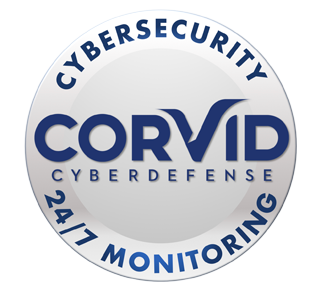 The 2019 Employee Wellness survey by PwC found that 73% of Millennials, 70% of Generation X, and 61% of Baby Boomers think health care costs will adversely affect their retirement. If a healthy 65-year-old couple retiring in 2019 expected to spend more than $387,000 for retirement health care costs, not including long-term care, what do you anticipate it’ll cost when you retire?
The 2019 Employee Wellness survey by PwC found that 73% of Millennials, 70% of Generation X, and 61% of Baby Boomers think health care costs will adversely affect their retirement. If a healthy 65-year-old couple retiring in 2019 expected to spend more than $387,000 for retirement health care costs, not including long-term care, what do you anticipate it’ll cost when you retire?
As daunting as these expenses seem, there are some things you can do to mitigate their effect and lessen the risk that they’ll derail your retirement. Start by following your doctor’s orders. Taking medications as prescribed and creating a healthy lifestyle can increase your longevity and minimize your health care expenses.
Beyond your lifestyle, consider your financial health and take precautions now that’ll add up in your later years. Retirement planning is crucial when it comes to health care costs. Make sure you include these costs in your budget and consider how you’ll cover them. One option might be to dedicate the income from an annuity strictly to out-of-pocket health care expenses.
If there’s an option to use a health savings account (HSA), consider maximizing your contributions for use in retirement. HSA accounts aren’t available to people who qualify for Medicare or are claimed as dependents on someone else’s taxes.
HSA withdrawals are tax-free when covering qualified medical expenses. Qualified health expenses include things not covered by Original Medicare, such as dental care and hearing aids. Tax-free withdrawal gives HSA’s a significant advantage over IRAs or 401(k)s, which require paying taxes on withdrawals.
To get the most out of your HSA for retirement savings, you should contribute the maximum possible. If you can avoid it, don’t use your HSA funds for medical expenses before retirement. Consider this money earmarked for your retirement health care costs.
Although you can retire at age 62 and still receive social security benefits, if you retire before the age of 65, you’ll need to find health insurance to cover your medical costs until you’re eligible for Medicare. The price of health insurance can come as a shock if you’re used to having employers contribute to your plan premium.
One of the most daunting expenses and experiences in retirement is long-term care. According to the U.S. Department of Health and Human Services, most Americans who reach age 65 will need long-term care at some point in their future.
Married couples who anticipate a spouse needing long-term care should investigate the benefits of a Medicaid-compliant annuity, which can preserve an income for the healthy spouse. Alternatively, you may purchase a long-term care rider, which would increase the annuity payout for a specified time period.
Planning today for your retirement costs is the best way to ensure you have what you need when you need it. As your financial professional, we have the resources to help you research and plan, so call us today at (540) 720-5656.
Adapted from Annuity.org1























 Megan Jones joined the ILG Financial team in 2020 as marketing director. Megan and her husband live in Fredericksburg, VA with their German Short Haired Pointer, Gus. Megan is a graduate of Longwood University and holds a degree in communications. Megan is the oldest of Dave Lopez’s three children and not only enjoys working alongside her father, but also with her cousin, Chase, who joined the ILG Financial team in 2020 as an advisor. Megan is also a fully licensed Life, Health, and Annuity agent. When not at work, Megan enjoys sitting on the back porch with family and friends enjoying food and music.
Megan Jones joined the ILG Financial team in 2020 as marketing director. Megan and her husband live in Fredericksburg, VA with their German Short Haired Pointer, Gus. Megan is a graduate of Longwood University and holds a degree in communications. Megan is the oldest of Dave Lopez’s three children and not only enjoys working alongside her father, but also with her cousin, Chase, who joined the ILG Financial team in 2020 as an advisor. Megan is also a fully licensed Life, Health, and Annuity agent. When not at work, Megan enjoys sitting on the back porch with family and friends enjoying food and music. Chase Lopez joined the ILG Financial team in 2020 as an advisor. Chase is a 2016 James Madison University graduate with a degree in management. Chase has been trained under the tutelage of Dave Lopez, who is not only the founder and managing member of ILG Financial, but also is Chase’s uncle and godfather. He also enjoys working alongside his cousin, Megan, who is Dave’s daughter.
Chase Lopez joined the ILG Financial team in 2020 as an advisor. Chase is a 2016 James Madison University graduate with a degree in management. Chase has been trained under the tutelage of Dave Lopez, who is not only the founder and managing member of ILG Financial, but also is Chase’s uncle and godfather. He also enjoys working alongside his cousin, Megan, who is Dave’s daughter. Amy Anderson joined the ILG Financial team in 2023 as the client relations coordinator. Her responsibilities include scheduling of appointments, annual check-up notifications, and annuity and required minimum distribution assistance. She is a graduate of Harding University with a degree in Computer Information Systems. Amy and her husband have two children and she enjoys reading, crocheting, music and spending time with her family.
Amy Anderson joined the ILG Financial team in 2023 as the client relations coordinator. Her responsibilities include scheduling of appointments, annual check-up notifications, and annuity and required minimum distribution assistance. She is a graduate of Harding University with a degree in Computer Information Systems. Amy and her husband have two children and she enjoys reading, crocheting, music and spending time with her family. Jessica Carson joined the ILG Financial team in 2018 as an agent. Jessica and her husband have four children, two dogs, 3 barn cats, 5 chickens, and three parakeets. She indeed loves her children and pets! When not at work, Jessica enjoys playing the piano and cello as well as traveling and spending time outside with her family, hiking, fishing, and boating.
Jessica Carson joined the ILG Financial team in 2018 as an agent. Jessica and her husband have four children, two dogs, 3 barn cats, 5 chickens, and three parakeets. She indeed loves her children and pets! When not at work, Jessica enjoys playing the piano and cello as well as traveling and spending time outside with her family, hiking, fishing, and boating. Terri Center joined the ILG Financial team in 2019 as client services manager. She handles client records, application processing, and gathering information to provide a professional and friendly experience with all of our clients. Terri is a graduate of Oakland University. She is married and has two children. She enjoys hiking, family time, and puzzle challenging video games. She also likes to share her creativity in her canvas paintings and sewing projects.
Terri Center joined the ILG Financial team in 2019 as client services manager. She handles client records, application processing, and gathering information to provide a professional and friendly experience with all of our clients. Terri is a graduate of Oakland University. She is married and has two children. She enjoys hiking, family time, and puzzle challenging video games. She also likes to share her creativity in her canvas paintings and sewing projects.